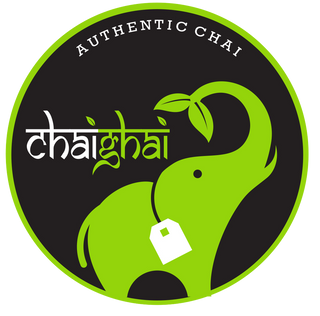“Ram! The light of lights, the self-luminous inner light of the Self is ever shining steadily in the chamber of your heart. Sit quietly. Close your eyes. Withdraw the senses. Fix the mind on this supreme light and enjoy the real Deepavali, by attaining illumination of the soul”

Chai Ghai would like to wish all our customers, readers and like minded souls a bright and prosperous Diwali. This year Diwali falls on November 4th and is most commonly observed by Hindus, Jains and Sikhs as well as some Buddhists. Diwali, known commonly as the “Festival of Lights” is a practice that dates back 1200 years ago to the 7th century. It is a celebration centered around the last harvest before winter and the triumph of good over evil and light over darkness. In northern India homes are lit up with diyas to celebrates the Rama’s victory over Ravana and his return from 14 years of exile. Fireworks (pataakhe) are lit to ward off evil spirits and add to this joyous celebration. In some parts of India Diwali signifies Krishna’s defeat over Narakasura, or the worship of Mata Kali, the dark goddess of strength as well as worship of lord Ganesha a symbol of auspiciousness. Diwali involves pujas, prayer for good health and wealth for the coming year and is the most widely celebrated Indian holiday for these reasons and more.
Who decides the Diwali date?

Diwali, also traditionally known as Deepawali, meaning Indian lamp, can trace its lineage to harvest festivals in ancient India. It entails the lighting of diyas, lamps, which symbolize the sun and thus cosmic giver of light and energy, which are referred to as such in the Padma and Skanda Purana, major texts in Hindu religion. When Diwali begins on the 7th month of the Hindu calendar, Ashwin, it marks the darkest night of the year and lasts for 5 days as the season’s transition into the 8th month, Kartika. This takes place every year in either October or November and originated as a celebration that signified the end of the harvest for the year.
What happens during Diwali?

Each day of Diwali has an important meaning to the festival as a whole. While diyas are lit to illuminate darkness and thus cleanse the home, other practices such as pujas (ceremonial worship) and rangolis, are undertaken during its festivities as well. Diyas are lit using Ghee or clarified butter and made to face south in the home in hopes of pleasing Yama, the god of death, to prevent against an early demise. Rangolis, colorful circle patterns, are traditionally made outside at the entrance of the house. These beautiful patterns are made from limestone, cereal powders and flower petals, to keep insects from entering the house as well as feeding them outside. The exchanging of gifts and sweets amongst friends and family as well as lighting Fireworks together are other highlights of Diwali and signify joy and celebration. Leaving all the lights on in the house to have Lakshmi find your home and come and bless the home is a very important tradition practiced. The brighter the home, the more likely Lakshmi will come to it according to the tradition.
Diwali's Ancient Origins - HISTORY
What happens each day of Diwali?
The first day of Diwali is known as Dhanteras for Dhan wealth and Teras thirteenth day of Kartika. Dhanteras is the occasion to buy jewelry, such as gold or silver as well as other metal objects that symbolize wealth. It is also a day of cleansing, which entails homes and businesses being cleaned and diyas being lit to light up the darkest night of the Hindu calendar.

The second day called either, Naraka Chaturdashi, meaning hell and fourteenth or Chhoti, meaning little, is a day of prayer, particularly for souls to pass peacefully into the afterlife as well as for good health and wealth for the coming year. It is also a day for the preparation of sweets, fashioned into various shapes, as well as the exchange of gifts between family and friends.

The center of the festival is the third day referred to as Lakshmi Pujan after Puja, which denotes a worship ritual performed with offerings most often to the Hindu deity Lakshmi. On this day many diyas are lit and are used after prayer to light outside activities such as a shared feast and desserts prepared for the occasion along with fireworks to enjoy with family and friends.

The fourth day of Diwali, Balipratipada, meaning first day of a new Lunar month is one where the bond between husband and wife is celebrated through the giving of personal gifts. Many different food and sweets are prepared so much so that it is referred to as Annakut, a mountain of food and sweets. This day also primarily deals with Vishnu sending Bali to Patala, the underworld in Hindu cosmology.
The last day, Bhai Duj, brother’s day celebrates the bond between brother and sister, where the brother would travel with gifts to meet his sister’s family and the sister; after prayer for her brother’s well being, would perform a ritual of feeding him with her hands. This tradition is said to stem from Krishna’s sister Subhadra placing a tilaka, mark in Sanskrit on his head after he came to her home upon defeating Narakasura.

How and why do people celebrate Diwali?
Diwali celebrates the health and wealth of all who practice it for the hope of a bountiful harvest that begins to grow after the monsoon season in India. As such, worshipping Lakshmi, the goddess of wealth is the most common practice during Diwali. The pujas dedicated in her honour ask for her to bless her disciples with prosperity for the year. Diwali also denotes the end of the fiscal year in the Indian business community as it denotes a New Year of the Hindu calendar. It marks a prosperous time to make big purchases or investments as the hope of the good fortune brought on by the presence of Lakshmi encircles such spending.

Money, Money, Money: The Link Between India's Most Famous Holiday Diwali And Getting Rich (forbes.com)
Why do people play cards during Diwali
The tradition of gambling on Diwali has come from the legend of Parvati goddess of wealth playing dice with her husband Shiva. It is believed that whoever gambles during Diwali will prosper throughout the year. For this reason many family and friends get together at Diwali parties and play card games all night long.
What gifts do you give on Diwali?
Diwali, signifying a major shopping period in India is one of affluence not only by investing in major items, but also buying gifts for loved ones. Diyas can be given in hopes of bringing light for the coming year and rangolis can be made to offer positivity to the household. Puja Thali, a prayer plate is also a popular gift, as it is made of metals such as gold, silver, brass or steel and symbolizes prosperity. It also contains the items Akahata, unbroken rice grains, incense, coconut and flowers. Kumkuma, powder made from dried turmeric is also an important component as it is often used to mark the forehead to help open up the third eye chakra. A container of holy water as well as gold or silver coins with Hindu symbols such as Om is also included. Lastly, Indian sweets adorn a Puja Thali and are a popular gift in general during Diwali. Gift sets such as these are important during pujas to bring light and success to a home. Chai Ghai has designed its own Diwali Gift Packages – Chai Ghai as we know Chai can play an significant role in bringing families together during Diwali as many people meet for chai when they exchange gifts.
Also many people host and attend Diwali parties were gifts are commonly exchanged. Let our beautiful Diwali gift packages present your loved ones with good fortune and well-being for the year to come.
.

Why is Diwali so important to Indians?
The festival of Diwali is an occasion to bring positivity to all who partake in it. Through the practice of puja and symbols of rangolis devotees give offerings and Seva to Hindu deities such as Lakshmi to create good will in the hopes of a prosperous New Year, where they are given the chance to flourish in their endeavors during the year to come. Diwali is also a time for reflecting on the things that bring joy to life, such a good health, family and friends. It is a commemoration of the triumph of light over darkness and is the reason why it is truly known as a “Festival of Lights.” Be in the moment and don’t make it a festival of sound and chaos, make it a festival of light and happiness. Happy Diwali, and Namaste.







